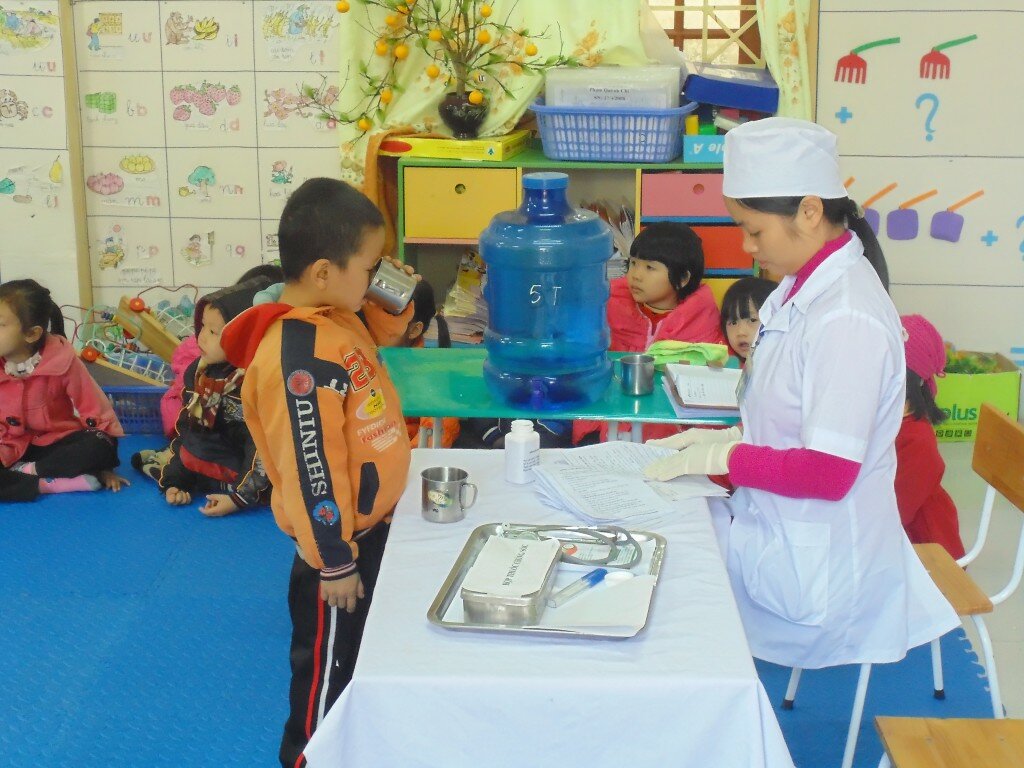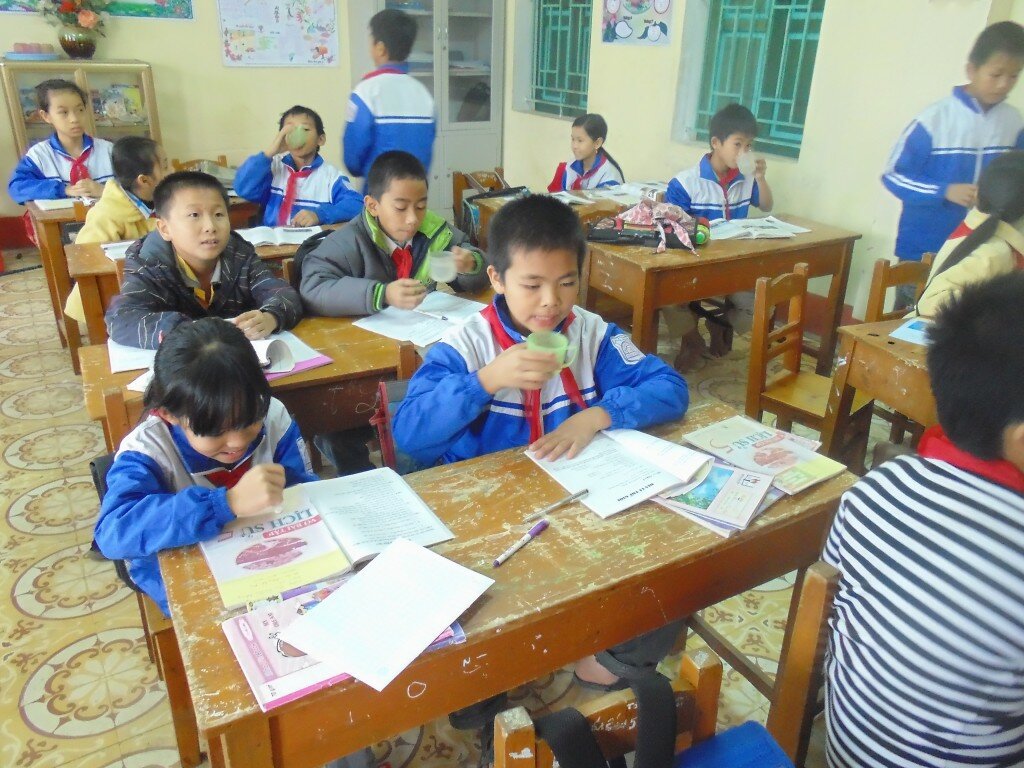For one month, countries around the world are gathering to watch arguably the greatest sporting event in the world—the World Cup. Every four years, people from around the world come together to celebrate this epic event that transcends political turmoil, and even wars and conflict. In this time of celebration, we’re taking the time to recognize the World Cup teams advancing to the prestigious Round of 16! In particular, we’re highlighting the progress their countries have made in controlling and eliminating neglected tropical diseases (NTDs).
Brazil
 The hosting nation of Brazil is being tagged as the favorite to win it all. If they do, the Brazilian National Soccer team would have a mind-blowing six World Cup trophies! While Brazil is famous for its passion and love for soccer, Brazil is also gaining public health recognition by taking concrete steps towards eliminating NTDs in their country. In Brazil, nearly 6.8 million people are infected with schistosomiasis and millions are at risk for other common NTDs. To address this problem, Brazil has launched an integrated National Plan of Action for NTDs to combat all seven of the most common NTDs. Last year, the Brazilian Ministry of Health led a campaign to diagnose and treat leprosy and intestinal worms in 9.2 million public schools.
The hosting nation of Brazil is being tagged as the favorite to win it all. If they do, the Brazilian National Soccer team would have a mind-blowing six World Cup trophies! While Brazil is famous for its passion and love for soccer, Brazil is also gaining public health recognition by taking concrete steps towards eliminating NTDs in their country. In Brazil, nearly 6.8 million people are infected with schistosomiasis and millions are at risk for other common NTDs. To address this problem, Brazil has launched an integrated National Plan of Action for NTDs to combat all seven of the most common NTDs. Last year, the Brazilian Ministry of Health led a campaign to diagnose and treat leprosy and intestinal worms in 9.2 million public schools.
 Argentina
Argentina
With Argentina having arguably the best player in the world, Lionel Messi, the country’s hopes of winning the World Cup are high. Over the last four years, Argentina made tremendous progress towards preventing NTDs such as Chagas disease and intestinal parasites in at risk populations. In 2011, the Government of Argentina launched the National Institute for Tropical Medicine in an effort to advance NTD research and finding new solutions for lowering the prevalence of NTDs in at risk regions in Argentina.
 Colombia
Colombia
The Colombian National Soccer team had been M.I.A. (missing in action) in World Cup action for the past 15 years. This year, Los Cafeteros has ended its long hiatus and is finally back on the World Cup stage. While the national team was working hard towards getting to this year’s World Cup, their country was busy accomplishing major NTD elimination goals. In 2011, Colombia became the first country in the Latin America region to eliminate onchocerciasis—a great milestone for Latin America and the Caribbean.
Nigeria
 Nigeria’s Supereagles has always had high expectations when entering the World Cup—and rightfully so. The Nigerian National Soccer Team is one of the very few African teams that has ever reached the second round of the knockout stage (Ghana, Senegal, Cameroon, Morocco are the only other teams). Nigeria is known for meeting expectations when it comes to controlling NTDs. This year, Nigeria achieved a major milestone in its fight against NTDs by launching Africa’s first integrated malaria and lymphatic filariasis (LF) elimination plan. Nigeria’s Ministry of Health has also reached 96 percent of communities with onchocerciasis mass drug administrations and is currently scaling up school-based deworming campaigns.
Nigeria’s Supereagles has always had high expectations when entering the World Cup—and rightfully so. The Nigerian National Soccer Team is one of the very few African teams that has ever reached the second round of the knockout stage (Ghana, Senegal, Cameroon, Morocco are the only other teams). Nigeria is known for meeting expectations when it comes to controlling NTDs. This year, Nigeria achieved a major milestone in its fight against NTDs by launching Africa’s first integrated malaria and lymphatic filariasis (LF) elimination plan. Nigeria’s Ministry of Health has also reached 96 percent of communities with onchocerciasis mass drug administrations and is currently scaling up school-based deworming campaigns.
 Mexico
Mexico
Mexico’s prized forward—Javier “Chicharito” Hernandez from Manchester United—hopes to transform the Mexican National Soccer Team into a serious contender in this year’s World Cup. Mexico has also taken serious strides in preventing NTDs by nearly eliminating onchocerciaisis and trachoma in their country. In 2011, Mexico launched a campaign to treat the last trachoma endemic state—Chiapas. Soon, Mexico hopes to become one of four countries in the region to eliminate trachoma.
 Costa Rica
Costa Rica
In 1990, Costa Rica shocked the world by advancing into the knockout stage. This year, Costa Rica has surprised the world again by advancing into the Round of 16! Costa Rica has already put the global health world on notice by working to receive a certification by the World Health Organization (WHO) stating that they’ve successfully stopped transmission of lymphatic filariasis (LF).
On behalf of END7, we’d like to thank these countries on their continued effort towards eliminating NTDs and wish them the best of luck in this year’s World Cup!





 The hosting nation of Brazil is being tagged as the favorite to win it all. If they do, the Brazilian National Soccer team would have a mind-blowing six World Cup trophies! While Brazil is famous for its passion and love for soccer, Brazil is also gaining public health recognition by taking concrete steps towards eliminating NTDs in their country. In Brazil, nearly 6.8 million people are infected with schistosomiasis and millions are at risk for other common NTDs. To address this problem, Brazil has launched an integrated National Plan of Action for NTDs to combat all seven of the most common NTDs. Last year, the Brazilian Ministry of Health led a campaign to diagnose and treat leprosy and intestinal worms in 9.2 million public schools.
The hosting nation of Brazil is being tagged as the favorite to win it all. If they do, the Brazilian National Soccer team would have a mind-blowing six World Cup trophies! While Brazil is famous for its passion and love for soccer, Brazil is also gaining public health recognition by taking concrete steps towards eliminating NTDs in their country. In Brazil, nearly 6.8 million people are infected with schistosomiasis and millions are at risk for other common NTDs. To address this problem, Brazil has launched an integrated National Plan of Action for NTDs to combat all seven of the most common NTDs. Last year, the Brazilian Ministry of Health led a campaign to diagnose and treat leprosy and intestinal worms in 9.2 million public schools. Argentina
Argentina Colombia
Colombia Nigeria’s Supereagles has always had high expectations when entering the World Cup—and rightfully so. The Nigerian National Soccer Team is one of the very few African teams that has ever reached the second round of the knockout stage (Ghana, Senegal, Cameroon, Morocco are the only other teams). Nigeria is known for meeting expectations when it comes to controlling NTDs. This year, Nigeria achieved a major milestone in its fight against NTDs by launching Africa’s first integrated malaria and lymphatic filariasis (LF) elimination plan. Nigeria’s Ministry of Health has also reached 96 percent of communities with onchocerciasis mass drug administrations and is currently scaling up school-based deworming campaigns.
Nigeria’s Supereagles has always had high expectations when entering the World Cup—and rightfully so. The Nigerian National Soccer Team is one of the very few African teams that has ever reached the second round of the knockout stage (Ghana, Senegal, Cameroon, Morocco are the only other teams). Nigeria is known for meeting expectations when it comes to controlling NTDs. This year, Nigeria achieved a major milestone in its fight against NTDs by launching Africa’s first integrated malaria and lymphatic filariasis (LF) elimination plan. Nigeria’s Ministry of Health has also reached 96 percent of communities with onchocerciasis mass drug administrations and is currently scaling up school-based deworming campaigns. Mexico
Mexico Costa Rica
Costa Rica